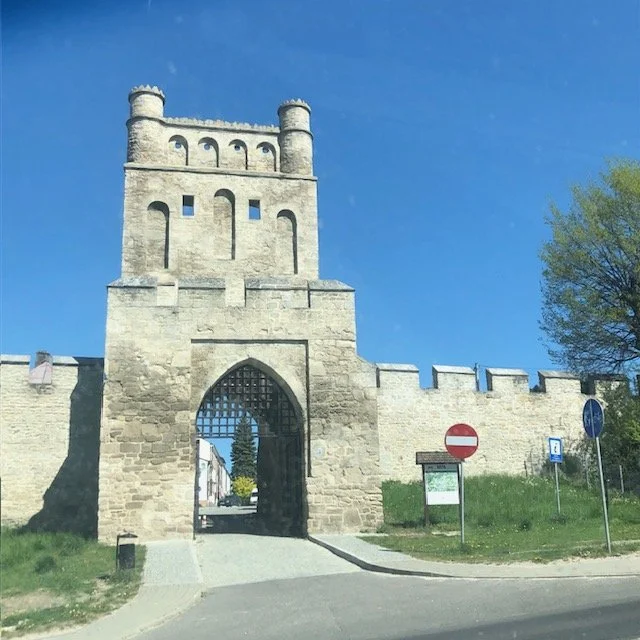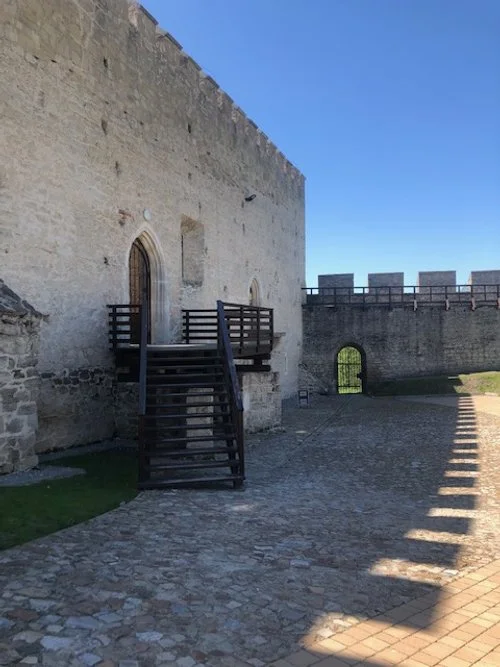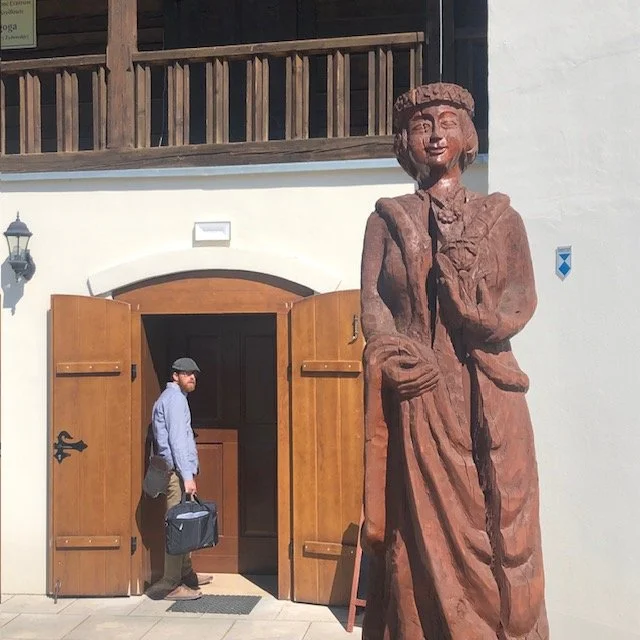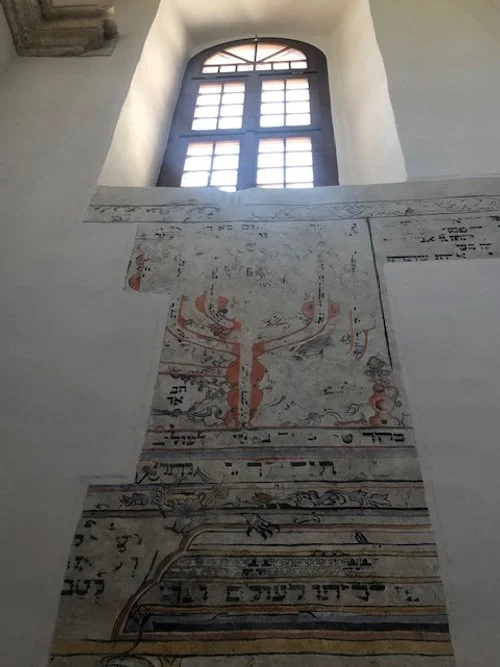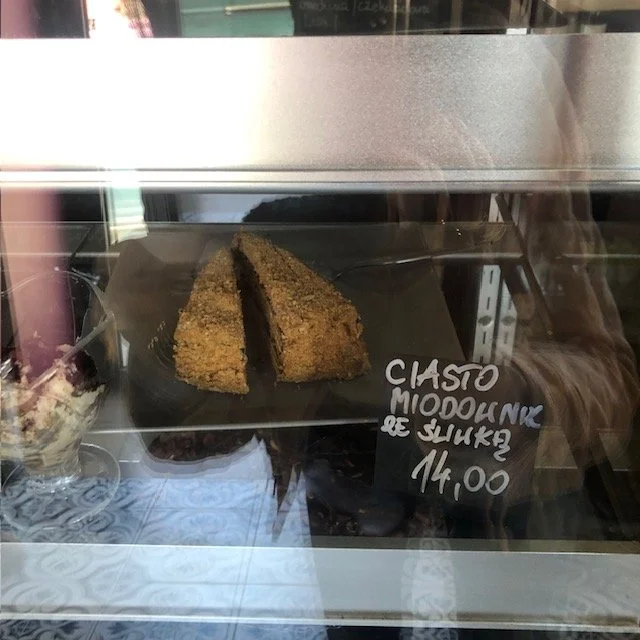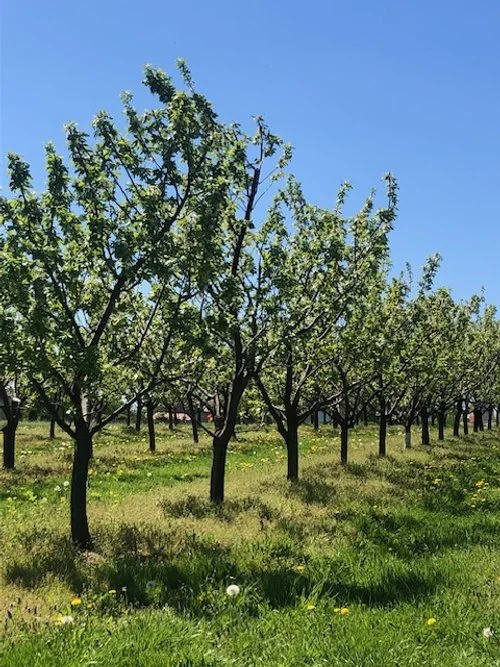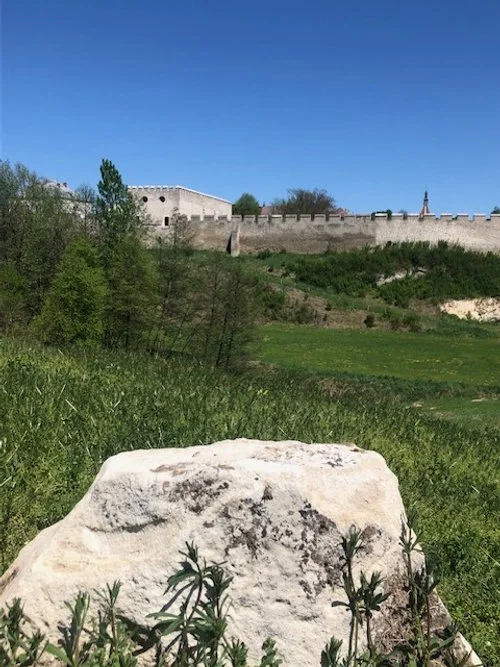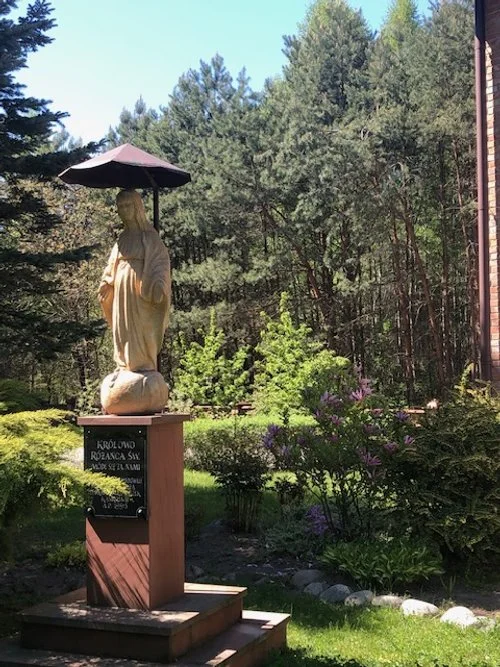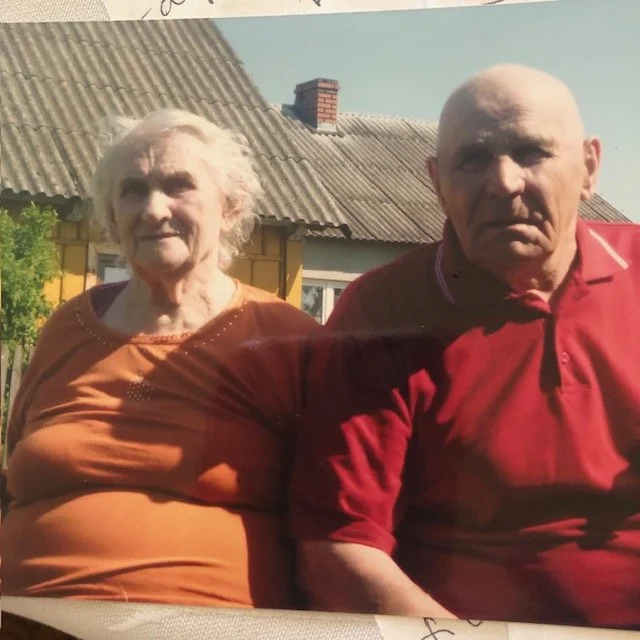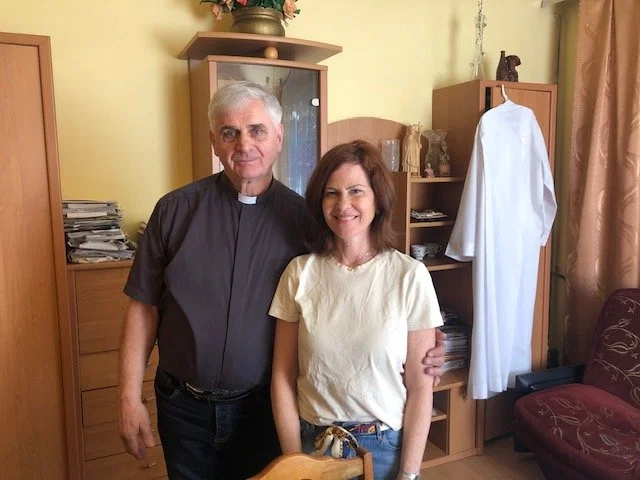Heritage
In spring 2022, I took a journey into the past and visited the place in southeast Poland where my paternal grandmother, Chana Hindl, came from. My historian-guide Matan took me on a tour of the area, and I was surprised at what we found.
Our first stop was Szydlow, where Jews had lived since the 14th century, and where my great-grandfather Berel was born. It is a medieval walled city with a castle and a newly restored synagogue, now a museum (white building, above right). The entrance is guarded by figures of King Casimir III the Great, below left, and his legendary companion Esther, a Jewish woman of great beauty and intelligence, believed to have influenced him to build the synagogue. Its interior is quite lovely, with gothic arches and windows. Below right, see part of its gallery of historic photos.
While sad that the synagogue is no longer in use as its historic, once bustling Jewish community was decimated in the Holocaust, I am grateful this important landmark has endured and is now restored. Some beautiful and ornate original details and artifacts remain, including painted murals with Hebrew prayers and images, lamps, carved panels of biblical scenes, headstones and a wall cache for donations, see below.
Our day guide was Pavel, a professor and priest who was born in the area. After we toured the castle and synagogue, he brought us to a small cafe where we sampled some local delicacies, plum parfait and miodownik - honeycake (also my grandfather’s original surname, changed when he arrived in Canada to Madonik). Plums and plum brandy are a local industry and the area is abundant with plum orchards.
Then Pavel took us to a church in town which had an unusual feature - an iron magen david, or Jewish star, on its door. We couldn’t decide what it meant - could the building be a former synagogue? Next, we went outside the city walls to a large, open field sparsely studded with stones. At one end near the fence was a pile of rocks, headstone fragments and a wooden marker.
Pavel explained that this area was the Jewish cemetery and that local people have begun to return the headstones and fragments, which had been removed during the Holocaust and used for construction. It was heartening to learn that he is spearheading this project to restore and preserve the cemetery, in order to honor the memory of the historic Jewish community of the town.
Next on our itinerary was the most surprising and important feature of the day. Pavel took us to a small village called Rakowka, near my grandmother’s town, Rakow.
The setting was lovely, green and peaceful as we approached a small church and residence. A smiling man named Josef Grabda, also a priest, graciously welcomed us into his home and to a lovely prepared lunch. As he spoke no English, I waited patiently for Matan to translate what my three companions were very animatedly discussing. It was an amazing story of bravery and compassion that Josef relayed to us as we ate our meal and lingered over glasses of tea.
In July 1943, Josef’s father Withold and grandfather Jan, the town elder, saved the lives of two Jewish cousins named Rosenfeld, tailors whom they recognized from the Rakow market square before the war. The Jewish men had escaped off a train bound for Auschwitz by cutting a hole in the floor of the cattle car with a saw fragment concealed in a shoe. They survived at first by sewing for villagers, but soon needed a hiding place which was provided by Jan and Withold, who kept them in their barn until the end of the war. Grabda father and son were honored by Yad Vashem as Righteous Among the Nations in 1985. I was heartened to learn this story, as Josef proudly showed us the Yad Vashem certificate and correspondence (above from left).
Above, from left, an aerial photograph of the Garden of the Righteous at Yad Vashem marked with locations of trees named for the honorees; Josef’s late father, Withold Grabda, and mother; Sam Rosenfeld and family in Netanya, Israel with whom the Grabdas still remain in contact; me with Josef Grabda.
I was very moved and grateful to learn that Josef teaches his students about his family’s important act of heroism and its growing relevance today. His father, grandfather and grandmother risked their lives, and the lives of family members, to save the Rosenfeld cousins from certain death because they knew it was the right and moral thing to do. An important lesson for all.
